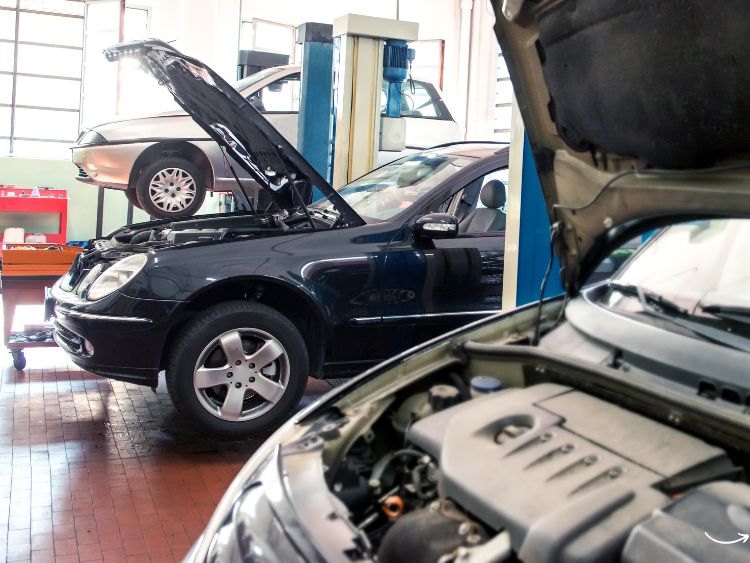Imagine cruising down the open road, wind in your hair, and not a care in the world. Sounds amazing, right? But what happens if your trusty vehicle decides to give up on you in the middle of nowhere? Regular vehicle maintenance can prevent such nightmares and keep your car running smoothly for years. In this comprehensive guide, we’ll dive into the nitty-gritty of vehicle maintenance, offering tips and tricks to keep your ride in tip-top shape. So buckle up, and let’s get started!
Why Regular Vehicle Maintenance is Essential
First off, let’s talk about why regular vehicle maintenance is so crucial. Neglecting your car’s upkeep can lead to unexpected breakdowns, costly repairs, and even accidents. Routine maintenance not only ensures your safety but also improves fuel efficiency and extends the life of your vehicle. Plus, a well-maintained car retains its value better, which is a boon if you ever decide to sell it.
Basic Maintenance Tasks
1. Oil Changes
One of the simplest yet most important maintenance tasks is changing your oil regularly. Engine oil lubricates the moving parts of your engine, reducing friction and preventing overheating. Over time, oil breaks down and becomes less effective, so it’s essential to replace it as per the manufacturer’s recommendations.
2. Tire Maintenance
Tires are your car’s contact point with the road, so keeping them in good condition is vital. Regularly check the tire pressure and tread depth. Properly inflated tires improve fuel efficiency and handling. Don’t forget to rotate your tires every 5,000 to 7,000 miles to ensure even wear.
3. Brake Checks
Your car’s braking system is crucial for your safety. Listen for any unusual noises when braking and pay attention to how your brakes feel. If they seem less responsive or you notice a grinding sound, it’s time for a check-up. Regularly replacing brake pads and inspecting brake fluid levels can prevent more significant issues down the line.
4. Fluid Levels
Your vehicle relies on various fluids to operate smoothly. Apart from engine oil, you should regularly check and top off the following fluids:
- Coolant: Prevents your engine from overheating.
- Transmission Fluid: Ensures smooth shifting of gears.
- Brake Fluid: Critical for brake performance.
- Power Steering Fluid: Aids in steering your vehicle with ease.
5. Battery Care
A dead battery can leave you stranded, so regular checks are a must. Inspect the battery terminals for corrosion and ensure they are clean and tightly connected. If your battery is more than three years old, consider having it tested to check its health.
Advanced Maintenance Tasks
1. Timing Belt Replacement
The timing belt is crucial for synchronizing the engine’s components. If it fails, it can cause significant engine damage. Most manufacturers recommend replacing the timing belt every 60,000 to 100,000 miles. Check your owner’s manual for specifics.
2. Spark Plug Replacement
Spark plugs ignite the fuel-air mixture in your engine, making them essential for combustion. Over time, they can wear out, leading to poor engine performance and increased fuel consumption. Regular replacement can keep your engine running efficiently.
3. Wheel Alignment and Balancing
Improperly aligned wheels can cause uneven tire wear and affect your car’s handling. If you notice your car pulling to one side or uneven tire wear, it’s time for an alignment check. Balancing your wheels ensures smooth driving and prolongs tire life.
4. Air Filter Replacement
A clean air filter ensures your engine receives the right amount of air for efficient combustion. Over time, the air filter can get clogged with dirt and debris, reducing engine performance. Regular replacement keeps your engine running smoothly and improves fuel efficiency.
DIY vs. Professional Maintenance
DIY Maintenance
Many basic maintenance tasks can be done at home with a little know-how and the right tools. Changing oil, replacing air filters, and checking tire pressure are straightforward and can save you money. However, always refer to your owner’s manual for guidance and safety precautions.
Professional Maintenance
For more complex tasks, it’s best to visit a professional mechanic. Advanced maintenance like timing belt replacement, brake repairs, and wheel alignment require specialized equipment and expertise. Investing in professional maintenance can prevent costly mistakes and ensure your vehicle is in top condition.
Seasonal Maintenance Tips
Winter Maintenance
Winter can be harsh on your vehicle. Here are some tips to keep your car running smoothly during the cold months:
- Check your battery, as cold weather can affect its performance.
- Ensure your tires have adequate tread for better traction on icy roads.
- Use winter-grade oil for better engine performance.
- Keep your gas tank at least half full to prevent fuel line freeze.
Summer Maintenance
Summer heat can also take a toll on your vehicle. Follow these tips to beat the heat:
- Check your coolant levels and top off if necessary.
- Inspect your air conditioning system to ensure it’s working efficiently.
- Keep an eye on your tire pressure, as it can increase with rising temperatures.
- Replace worn-out windshield wipers for those sudden summer showers.
Frequently Asked Questions (FAQs)
1. How often should I change my oil?
It’s generally recommended to change your oil every 3,000 to 5,000 miles, but always check your owner’s manual for specific guidelines.
2. How can I tell if my brakes need to be replaced?
If you hear a squealing or grinding noise when braking, or if the brake pedal feels soft or spongy, it’s time to have your brakes checked.
3. What should I do if my check engine light comes on?
The check engine light can indicate a variety of issues. It’s best to have it diagnosed by a professional mechanic to determine the exact problem.
4. How often should I replace my air filter?
Most manufacturers recommend replacing the air filter every 12,000 to 15,000 miles. However, if you drive in dusty conditions, you may need to replace it more frequently.
5. Can I perform regular vehicle maintenance myself?
Yes, many basic maintenance tasks can be done at home. However, for more complex issues, it’s best to consult a professional mechanic.
Conclusion
Regular vehicle maintenance is key to keeping your car running smoothly and safely. By staying on top of routine tasks like oil changes, tire maintenance, and brake checks, you can prevent costly repairs and extend the life of your vehicle. Whether you’re a DIY enthusiast or prefer leaving it to the professionals, maintaining your car is an investment that pays off in the long run. So don’t wait—start your vehicle maintenance routine today and enjoy a smoother, safer ride!
Authoritative Links
For further reading and authoritative sources on regular vehicle maintenance, check out these links:
- www.aaa.com/automotive/maintenance-tips
- www.edmunds.com/car-maintenance-guide
- www.consumerreports.org/cro/car-maintenance.htm
- www.nhtsa.gov/maintenance
- www.carfax.com/car-maintenance







